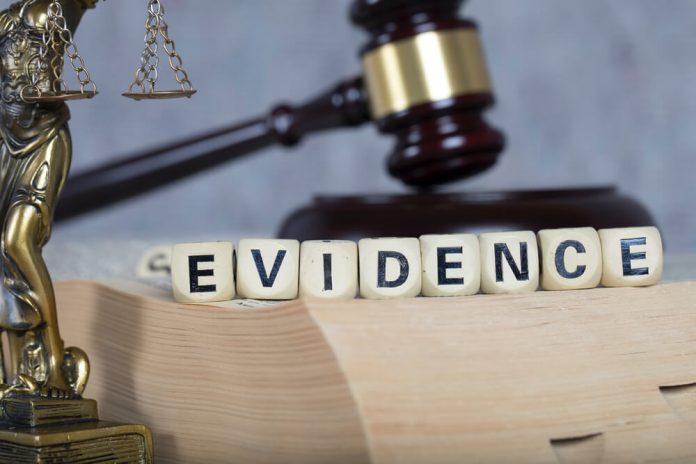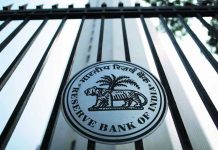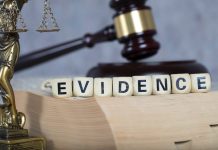This article has been written by Shanuja Thakur.
It has been published by Rachit Garg.
Table of Contents
Introduction
Experts are required in every discipline to examine the cases in which they specialise. In the same way that experts are required to support the evidence and to study the facts accurately in criminal trials, medical evidence also has to support the accuracy and justification of its claims. In the Indian judicial system, the administration of justice is influenced by expert opinion. The significance of medical expert opinion and the use of medical methods during investigation in the criminal justice system has been quite a debate in India for a few years now. Through this article, we will be discussing the admissibility of medical evidence and the nature of such admissibility.
Understanding medical evidence
As per the definition, those materials that bring proper and pertinent facts before the Court and with the aid of which the Court is persuaded of these facts are considered “evidence,”. The evidence law classifies evidence as oral, documentary, and circumstantial proof of what is being alleged by the parties in a suit. When we talk about medical evidence, they are opinions of medical experts presented in court. A medical expert’s testimony supported by his scientific knowledge, ability, expertise, and personal experience is referred to as “medical evidence.”
While the law prosecutes a person for murdering and injuring others, medical science provides clues as to how the death of the person and how the harm was caused, Whether the wounds are post-mortem or anti-mortem, the likely weapon used to inflict harm, the effect and outcome of the wounds, the consequences of the wounds, whether they are sufficient in the normal course of nature to cause the death of a person, the duration of the wounds, the number of stabs and the likely time of death, the cause of death, the claim of insanity, the determination of age, etc. All such facts can be conclusively proved in court with the help of medical science. This interaction has inevitably become more prevalent as medical research has developed. However, this evidence is corroborative in nature and does not always override eyewitness testimony, unless that testimony is found to be false. The court may not consider the medical evidence if there is a discrepancy between the two
In criminal trials involving offences against the human body, medical evidence has a “decisive role” to play, and experts’ opinions should be accepted and justified by logic. Strong corroboration is provided by the prosecution’s use of medical information. The prosecution’s case is consistent with evidence that medical science can corroborate, thus there is no reason not to believe the eyewitnesses. It establishes that the injuries may have been caused in the manner suggested and that the injuries may have led to death. Whereas the defence can utilise the medical evidence to prove that the injuries could not have been brought on in the manner stated or that the death could not have been brought on in the manner suggested by the prosecution. If the defence is successful, the credibility of the witnesses is questioned. Medical evidence typically only has corroborative value. It simply serves to show that the injuries may have been caused in the manner asserted. The medical evidence can be utilised by the defence to demonstrate that the injuries could not have been sustained in the way that is being asserted and, as a result, to discredit the eyewitnesses. However, unless the medical evidence goes so far as to completely rule out any possibility of injuries occurring in the way claimed by the eyewitnesses, the testimony of the eyewitnesses cannot be rejected based on an alleged inconsistency between it and the medical evidence.
Qualifications to be a medical expert
A medical expert is a person who has specialised knowledge and expertise in a field that enables him to offer opinions and draw conclusions pertinent to the case, as well as to aid the court impartially and objectively. The medical expert witness is supposed to explain the standard of care in situations involving medical negligence and the professional conduct standard, as well as to offer an opinion backed by solid justifications and supporting data. A medical expert witness must be taught to become competent to be useful. Untrained, and inept expert witnesses would lead courts and tribunals to draw incorrect findings, complicate the resolution of disputes, consume resources, and be expensive. The advice of experts should be backed up by evidence and compelling arguments. The court cannot be expected to relinquish its decision-making and give its power.
Medical evidence and Section 45 of the Indian Evidence Act, 1872
Section 45. Opinions of experts. —When the Court has to form an opinion upon a point of foreign law or science or art, or as to the identity of handwriting [or finger impressions], the opinions upon that point of persons specially skilled in such foreign law, science or art, [or in questions as to the identity of handwriting] [or finger impressions] are relevant facts. Such persons are called experts.
A legal exemption to the usual rule that evidence from third parties is not admissible in a court of law is provided by Section 45 of the Indian Evidence Act. It says that when a court needs to form an opinion to make a decision but is unable to do so, the court may seek the opinion of a subject-matter expert. Science, the arts, fingerprints, handwriting, and foreign laws are the five categories named in Section 45 as areas in which the court may consult experts. The basis for this rule is the Latin maxim “cullibet in sua arte est credendum,” which states that a party with a particular skill in a subject must be believed and relied upon by the court in a given situation related to that field.
According to Section 45 of the Indian Evidence Act, of 1872, medical evidence can be used to corroborate other types of evidence in India. Particularly in cases of crimes against women, the medical testimony, which is recognised as opinion evidence, is a crucial component of the evidence. Without the assistance of a person with specialised knowledge or experience in a particular field, the court is unable to render an accurate decision. The court consults an expert, a person with specialised knowledge when it needs their opinion on a matter that calls for particular help. If the witness is an expert, the third party’s view is taken into account when determining whether facts are pertinent. Section 45 of The Indian Evidence Act, of 1872 defines an expert. The court might need an expert’s judgement on the following matters: to decide the identity by Handwriting, Finger Impression of a person. Expert opinion on electronic and medical evidence. It is pertinent to note that an individual’s opinion is only regarded as an expert opinion if they have experience in the subjects mentioned above.
A doctor plays a key role in a case’s development by entering the crime scene with the intention of forming an opinion or providing an expert report. However, the testimony of a lone witness cannot be overruled by the report of a medical expert who was not there at the crime site when the crime was committed. However, in cases of controversy, the court has eventually favoured medical evidence over ocular evidence, which we are going to analyse in this research. The injuries that caused the death, the likely weapon, the time of death, and other similar medico elements have all influenced the decision in cases when there is a discrepancy between the medical evidence and the visual evidence. However, given that the medical evidence is probative and corroborative in character, the ocular evidence cannot simply be ignored in this case. To be proven accurate, it needs to be backed up with concrete evidence.
Evidentiary value of medical evidence
The opinion of a medical expert is not direct evidence, but it has corroborative value. It can only support the grounds of an eyewitness and prove the direct evidence. Over the years the value of medical evidence has appreciated considerably. The provision is however silent on the value or the weight of expert opinions. Only the admissibility of expert testimony is stated in this section. Expert testimony does not constitute substantive evidence, and it is typically used to either support or discredit oral testimony. The testimony of an expert is solely useful as advisory assistance to the court. Since the expert is not a witness of the facts, the court must evaluate his judgement impartially. The expert is never given the authority to make decisions; rather, they are made by the Court with assistance from the expert.
In case of a conflict between oral and expert evidence, oral evidence is given more value, earlier the opinion of an expert was considered merely an opinion, which is irrelevant generally and depends on the circumstances to be considered relevant and have only persuasive value. In the case of State of Haryana v. Bhagirath, the court held. The testimony of a medical expert need not be the final word on the matter. The court will examine this viewpoint. The court is not required to follow an opinion if it lacks logic or objectivity. After all, an individual’s opinion is what they construct regarding a factual scenario. It is up to the judge to adopt the view that is more objective or likely when two doctors form conflicting opinions based on the same facts. Similarly, if a doctor’s conclusion is not supported by probability, the court is not required to accept it just because the doctor said it.
However, this position has begun to evolve. Evidence evaluation is both an art and a science. To determine a contested question of fact, the Court must take into account all pertinent information. It is necessary to weigh all factors, including any expert opinion offered. The crucible must be filled with all necessary inputs. But the Court’s wisdom, common sense, and intellect must be the source of such appreciation. The ability to understand persons and court proceedings is essential. The court’s understanding of the course of events and typical and likely human behaviour will be crucial. Accepting the guidelines of reasonably prudent thinking is necessary. The decision-making process must consider all pertinent circumstances
No piece of evidence can be said to prevail over the others after it has been sorted, tested, analysed, and evaluated unless it is conclusive, convincing, and beyond a reasonable doubt.
Hence the value of the medical evidence or expert opinions, in general, depends on the subject’s nature. In actual practice, we observe that reliable and credible oral evidence is given precedence over scientific evidence and its value depends on how much support it gives to the direct evidence given by an eyewitness or contradicts it removing the possibilities of injury alleged by the party. Hence medical evidence has great persuasive value but it can be disregarded on valid grounds
Important case laws on admissibility and relevance of medical evidence
We further seek to analyse the current position of medical evidence by following case laws –
Magan Bihari Lal vs State of Punjab
The Supreme Court of India held that” It is now well settled that expert opinion must always be received with great caution and perhaps none so with more caution than the opinion of a handwriting expert. There is a profusion of presidential authority which holds that it is unsafe to base a conviction solely on expert opinion without substantial corroboration. This rule has been universally acted upon and it has almost become a rule of law.”
In Ram Narain Singh v. State of Punjab
This Court held that where the evidence of the witnesses for the prosecution is inconsistent with the medical evidence or the evidence of the ballistics expert, it amounts to a fundamental defect in the prosecution’s case and unless reasonably explained it is sufficient to discredit the entire case.
Solanki Chimanbhai Ukabhai V. State of Gujarat
The Court stated that “typically, the significance of medical evidence is only corroborative. It just establishes that the injuries might have been brought on in the way claimed, nothing more. The medical evidence can be utilised by the defence to show that the injuries could not have been caused in the way that is being claimed, so casting doubt on the eyewitnesses. The testimony of the eyewitnesses cannot be rejected based on an alleged discrepancy between it and the medical evidence, however, unless the medical evidence goes so far as to fully rule out any possibility of injuries occurring in the manner claimed by the eyewitnesses.
Hence, over time the value of medical evidence has increased, it indeed is corroborative and not conclusive and where there is a glaring inconsistency between the direct evidence and the medical evidence in respect of the entire prosecution case, it becomes a defect in the prosecution case. If the evidence of the witness for the prosecution is inconsistent with the medical evidence, this is a most fundamental defect in the prosecution case and unless reasonably explained, it is sufficient to discredit the entire case.
Suggestions
There has not been any substantial amendment to the Indian Evidence Act, of 1872 which could clarify the weightage to be given to medical evidence, the scientific techniques and methods have improved and evolved significantly. The accuracy of such techniques we have now is more than what eyes and ears can perceive. When we talk about human senses and psychology and human perception of things or the state of things around him or her can be inaccurate and can be highly unreliable, whereas medical evidence is scientific and accurate proof of things or the state of things. The reliability of medical evidence is certainly more that how a human perceives the facts because science has reached where humans can’t. DNA tests were not developed at the time this Act was enacted and no changes have been made since there is no mention of DNA testing in it. As a result, no legislation controls DNA tests and specifies how they should be conducted.
Furthermore, it is significant to note that the Indian Evidence Act has some difficulties with the use of expert testimony under Section 45. First off, the Section makes no mention of who qualifies as an expert or how the court will determine if the expert they select is knowledgeable about the subject matter or not. The statute also lacks guidelines for how the court would make sure that the chosen expert is impartial toward any particular party. These factors lead to India’s poor evidence standards for expert opinion.
The standards of collecting medical evidence must be set by courts to make sure that the evidence is reliable and that there is no scope for human error. Forensic science in India stands nowhere as compared to other developed nations that have considerably developed in terms of fighting crime. One DNA sample, just one saliva sample can help forensic experts to solve any matter in their hands that is the kind of power science has and harnessing this resource can certainly help the Indian judiciary and executive authorities to control crime. Laboratories have the potential which is still to be unlocked in India. This can only be done by the legislature and effective implementation of the law.
Updating the law with evolving scientific techniques so that both can run parallel to each other is what we need. Following century-old criminal law is not going to solve the problems of the present because crime has evolved too and become smart and fast. The laws and the techniques of investigation must become smarter and faster. This is the only way to realise the end goals of our justice system.
Conclusion
According to the Indian Evidence Act of 1872, medical evidence may be used to support other types of evidence in India. Particularly in situations involving crimes against women, medical evidence, which is regarded as expert proof, is an important and necessary component of the evidence. The government has established laboratories and other institutions across the country that provide scientific services to the criminal court system since expert evidence is required in criminal cases. Thus, witnesses and evidence are crucial to the law’s ability to administer justice. The evidence that the court hears is the most important factor in determining whether it will find in favour of the prosecution or the defence. Oral testimony may be thought of as having precedence over medical evidence since witnesses are the justice’s eyes and ears. The oral evidence must be accepted if it is determined to be reliable, factually sound, and establishes probability; it cannot be discounted based on fictitious medical evidence. The medical officer’s testimony must be given limited weight because he is an expert witness, not given extraordinary weight. However, as there is no unquestionable presumption that a medical officer is a trustworthy observer of reality, his testimony must be evaluated and taken into account in the same way as any other regular witness’ testimony. Therefore, rather than giving medical evidence definitive status, it is correct to maintain the corroborative position of medical evidence because the value of its admissibility depends on several factors, such as the credibility of the medical expert, if the medical opinion supports the contention made by the parties, if the opinion is weakening the contentions, then the oral evidence is put under more scrutiny.
References
[1] Indian Evidence Act, 1872 [2] (1999) 5 SCC 96 [3] 2005 (3) KLT 163 [4] 1977 AIR 1091, 1977 SCR (2)1007 [5] AIR 1975 SC 1727 [6] AIR 1983 SC 484 [7] Ram Narain v. State of Punjab, AIR 1975 SC 1727, Amar Singh v. State of Punjab, AIR 1987 SC 826: (1987) 1 SCC 679: 1987 Cr.L.J. 706)Students of Lawsikho courses regularly produce writing assignments and work on practical exercises as a part of their coursework and develop themselves in real-life practical skills.
LawSikho has created a telegram group for exchanging legal knowledge, referrals, and various opportunities. You can click on this link and join:
Follow us on Instagram and subscribe to our YouTube channel for more amazing legal content.
 Serato DJ Crack 2025Serato DJ PRO Crack
Serato DJ Crack 2025Serato DJ PRO Crack











 Allow notifications
Allow notifications


